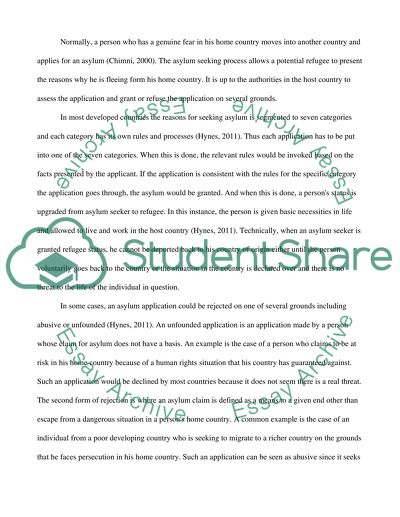Cite this document
(“Refugees and Asylum Seekers Research Paper Example | Topics and Well Written Essays - 1500 words”, n.d.)
Retrieved from https://studentshare.org/english/1427418-refugees-and-asylum-seekers
Retrieved from https://studentshare.org/english/1427418-refugees-and-asylum-seekers
(Refugees and Asylum Seekers Research Paper Example | Topics and Well Written Essays - 1500 Words)
https://studentshare.org/english/1427418-refugees-and-asylum-seekers.
https://studentshare.org/english/1427418-refugees-and-asylum-seekers.
“Refugees and Asylum Seekers Research Paper Example | Topics and Well Written Essays - 1500 Words”, n.d. https://studentshare.org/english/1427418-refugees-and-asylum-seekers.


